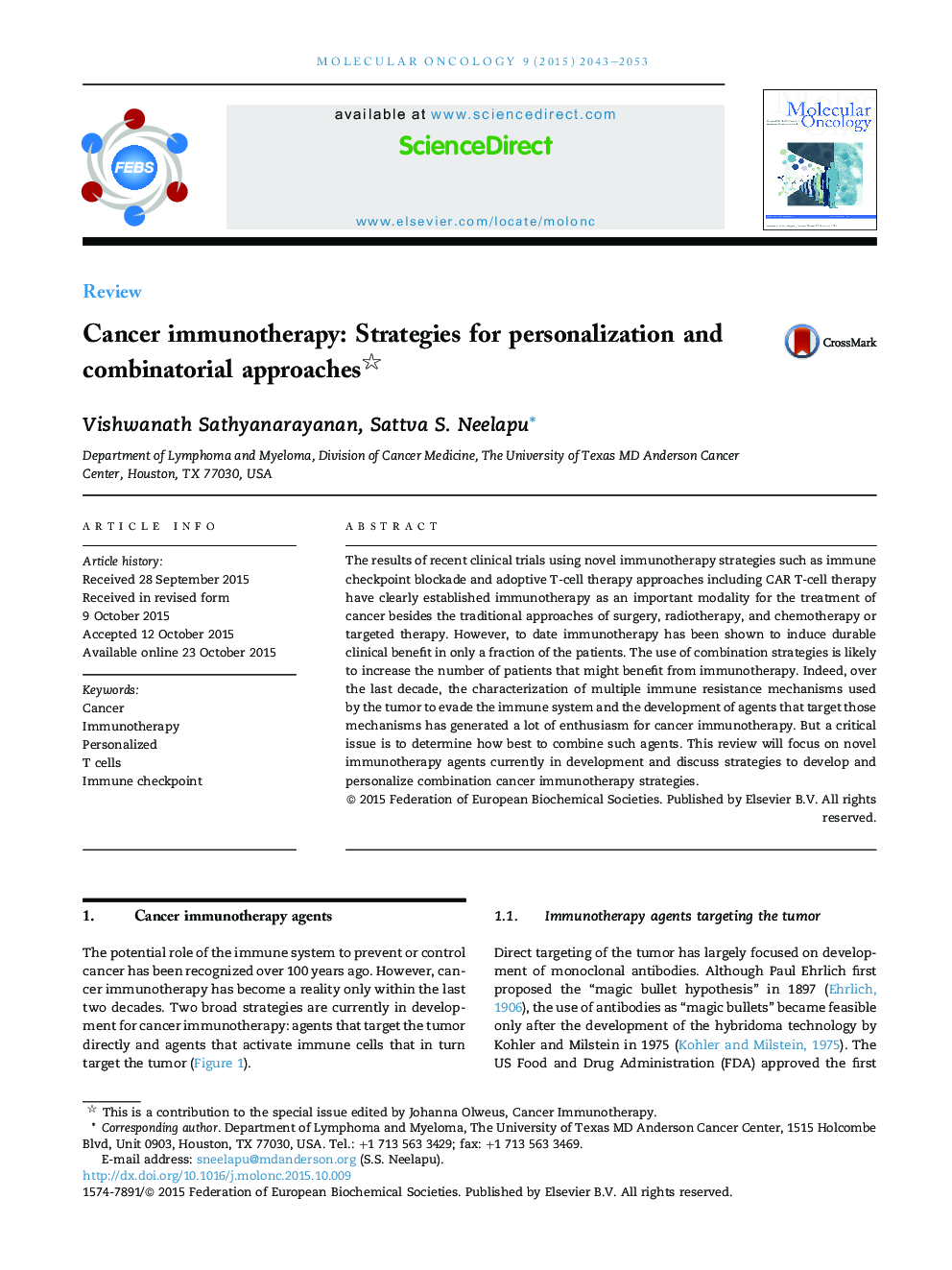| Article ID | Journal | Published Year | Pages | File Type |
|---|---|---|---|---|
| 2145586 | Molecular Oncology | 2015 | 11 Pages |
•Many immunotherapy agents are in development for the treatment of cancer.•Immune checkpoint inhibitors and adoptive T-cell therapies have been shown to induce durable remissions in many cancers.•Combination strategies are likely to further improve efficacy of cancer immunotherapy.•Identification of biomarkers may lead to development of rational combinations and personalized immunotherapy approaches.
The results of recent clinical trials using novel immunotherapy strategies such as immune checkpoint blockade and adoptive T-cell therapy approaches including CAR T-cell therapy have clearly established immunotherapy as an important modality for the treatment of cancer besides the traditional approaches of surgery, radiotherapy, and chemotherapy or targeted therapy. However, to date immunotherapy has been shown to induce durable clinical benefit in only a fraction of the patients. The use of combination strategies is likely to increase the number of patients that might benefit from immunotherapy. Indeed, over the last decade, the characterization of multiple immune resistance mechanisms used by the tumor to evade the immune system and the development of agents that target those mechanisms has generated a lot of enthusiasm for cancer immunotherapy. But a critical issue is to determine how best to combine such agents. This review will focus on novel immunotherapy agents currently in development and discuss strategies to develop and personalize combination cancer immunotherapy strategies.
